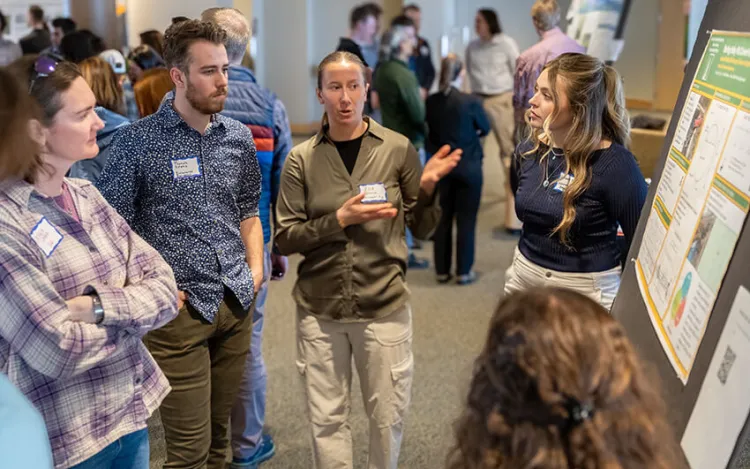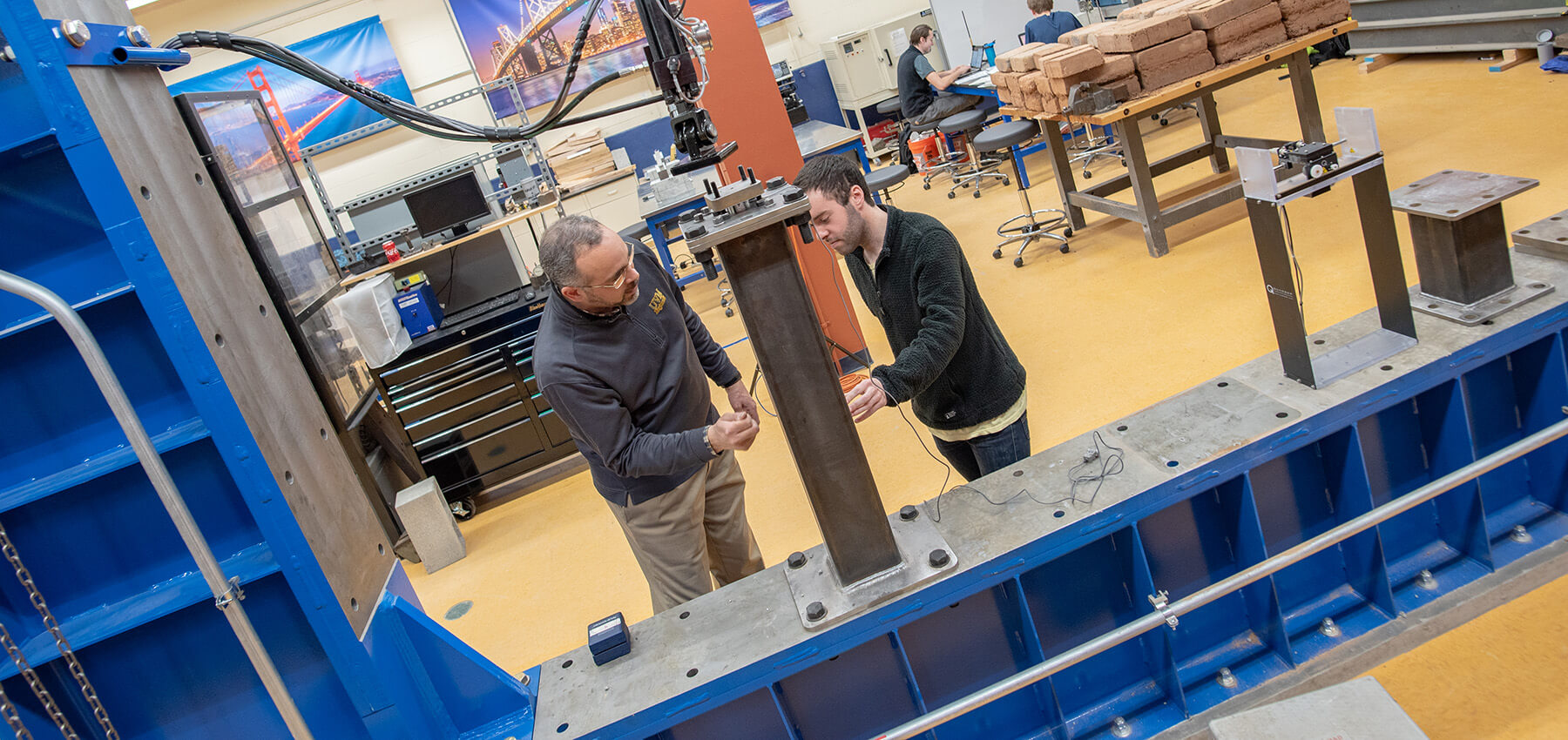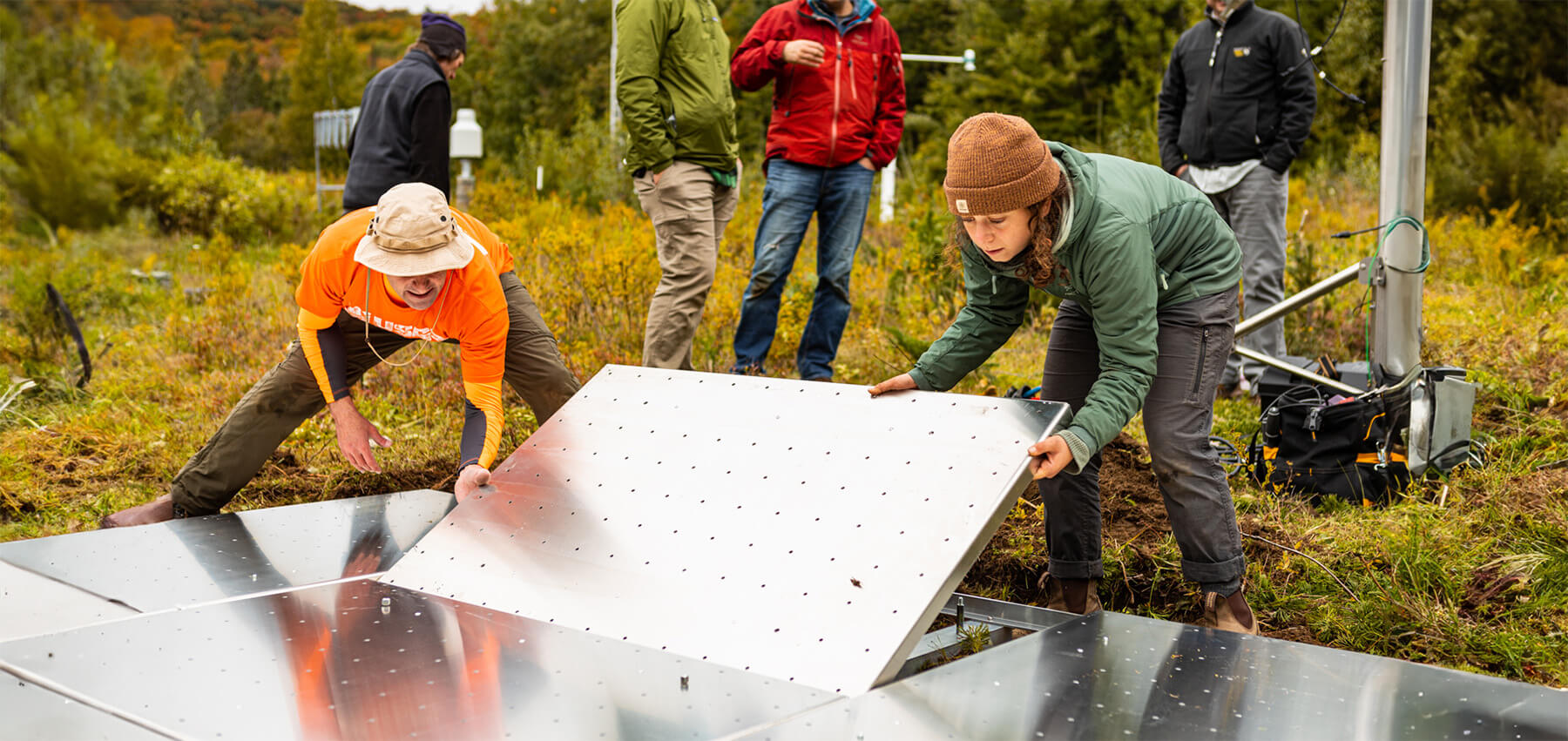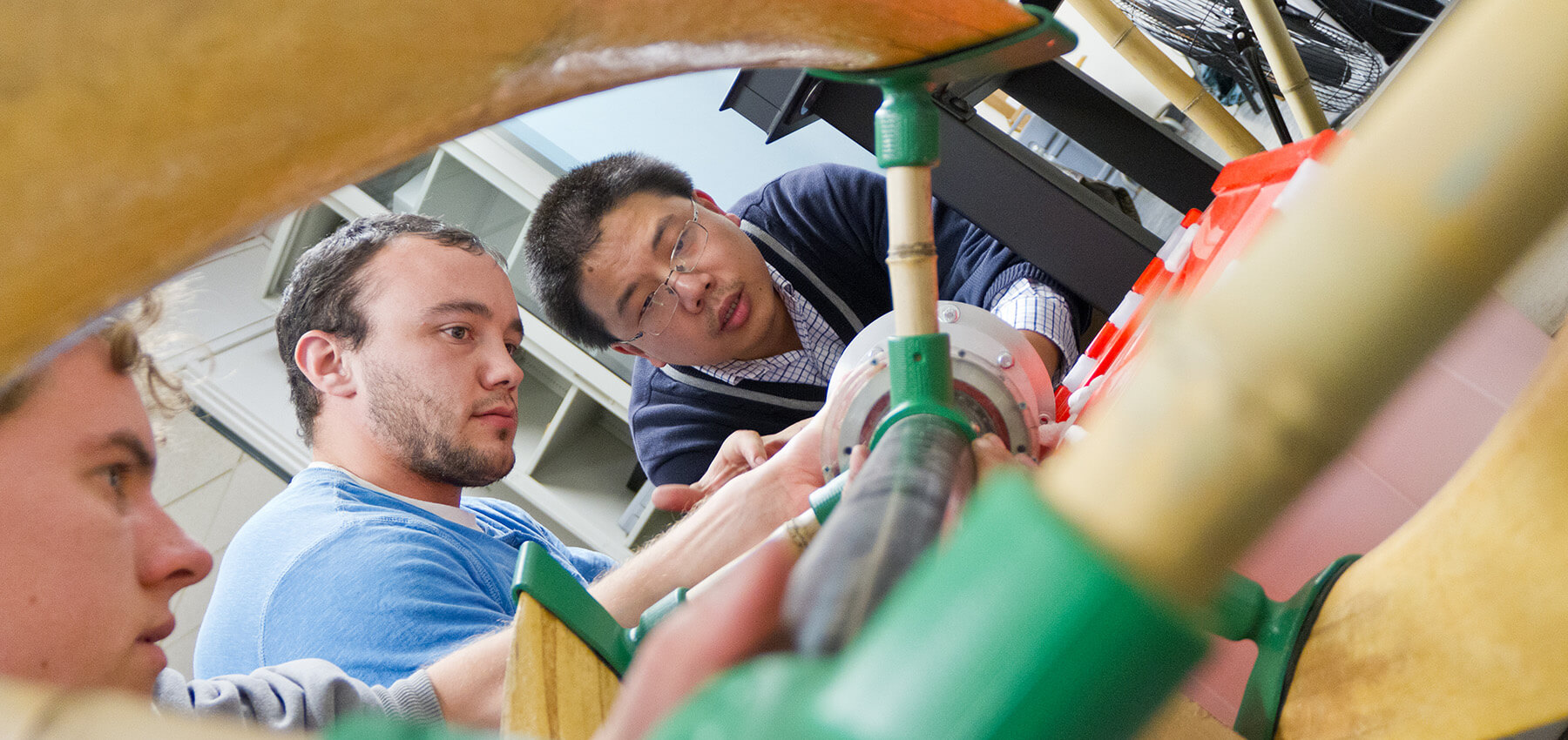Program Overview

Civil engineers design, build, and preserve the built fabric of our society including roads, bridges, buildings, drinking water and energy systems, waterways and ports, airports and the infrastructure for a cleaner environment. Civil engineering is an exciting profession because you get to see the products of your design, whether it is a high-rise building, a bridge, a dam, a roundabout, a canal or a wind turbine, to name a few. Civil engineers may work in the private sector at consulting firms or in the public sector for local, state or federal government in jobs that involve being outside, hands-on construction and monitoring, computer-aided analysis and design. A civil engineering degree also provides a great foundation to build other careers such as management, public administration, teaching, law and medicine.
An engaging and well-rounded curriculum
Civil Engineering students at UVM begin their education by acquiring a common base of knowledge in mathematics, sciences, and engineering, and then progressively learn to analyze and design sustainable civil engineering systems. The degree culminates in a capstone design experience in the senior year, which is typically a service-learning project in collaboration with a community partner. The degree intentionally does not require specific senior-level specialized courses. Instead, students get to select the specialized courses to their liking in structural engineering and materials, geotechnical/geoenvironmental engineering, transportation engineering, environmental and water resources engineering, energy, engineering management, and so on. The civil engineering degree as a whole has UVM’s Sustainability Designation. Students can take courses in arts, languages, community development, business, and other areas as part of the general education component. The degree program includes nine courses with hands-on laboratories, and most technical electives are project-based. The curriculum allows opportunities for picking up a minor, co-op and/or study abroad experiences, or an accelerated Master’s degree.




